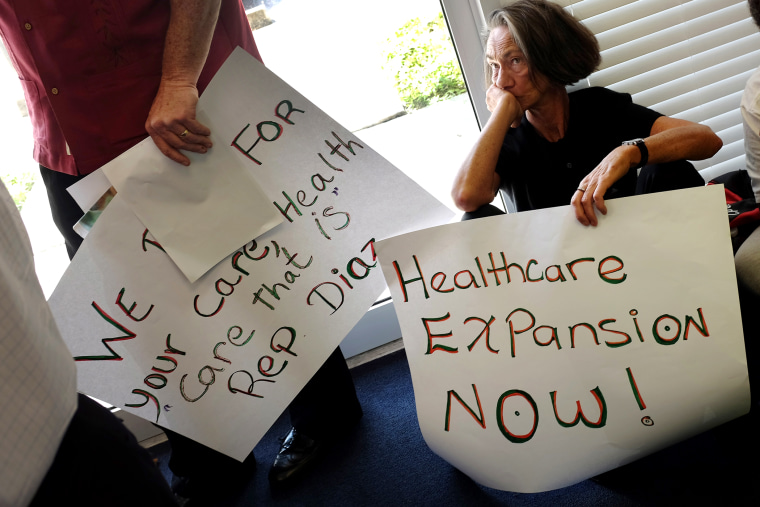"...I'm offended on two levels here. I'm offended because I believe we can help poor people get health insurance, but I'm almost more offended there's a principle of political economy that basically, if you'd told me, when the Supreme Court decision came down, I said, 'It's not a big deal. What state would turn down free money from the federal government to cover their poorest citizens?' The fact that half the states are is such a massive rejection of any sensible model of political economy, it's sort of offensive to me as an academic. And I think it's nothing short of political malpractice that we are seeing in these states and we've got to emphasize that. [...] "[Conservative policymakers in these states] are not just not interested in covering poor people, they are willing to sacrifice billions of dollars of injections into their economy in order to punish poor people. It really is just almost awesome in its evilness."
The Commonwealth of Virginia is modeling dysfunction yet again this month, as the legislature fights to the death over Gov. Terry McAuliffe’s proposed two-year, $97 billion budget. The government is imploding in large part due to the fact that state Republicans in the House of Delegates have decided to fight tooth and nail -- up to and including shutting down the whole government if this is not resolved by July -- to avoid expanding Medicaid benefits to cover up to 400,000 lower-income Virginians who fall into the health care coverage gap. These are the folks who can’t afford to purchase health care under the ACA, but make too much money to qualify for Medicaid. The ACA would have taken care of those people through an expansion of Medicaid -- money from the federal government to the states to cover the gap. The high court, in 2012, left it to the states to decide whether to accept the expansion. Virginia is one of the states having a hard time making up its mind. As with all government shutdowns, the answer to “why is this happening?” is “Republicans hate Obamacare.” [...] Last week McAuliffe proposed a two-year pilot expansion of Medicaid, which could be canceled if it proved unsuccessful. This seemed very reasonable. The House Appropriations Committee killed it. So yesterday, in Richmond, both the Senate Finance Committee and the Medicaid Innovation and Reform Commission met to argue and vote about stuff. Republicans blamed Democrats. Democrats blamed Republicans. Everyone blamed gerrymandering and gridlock and ideology.
